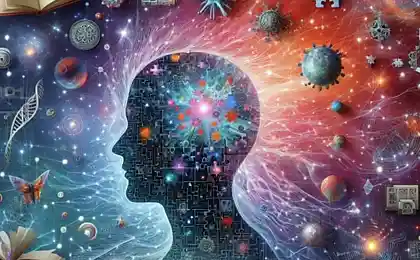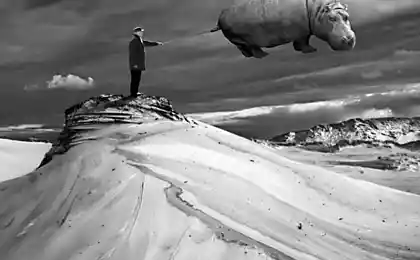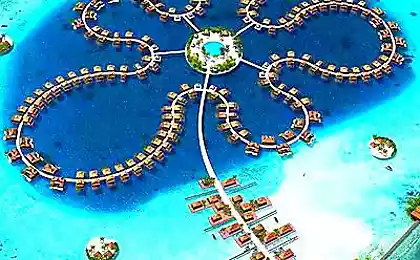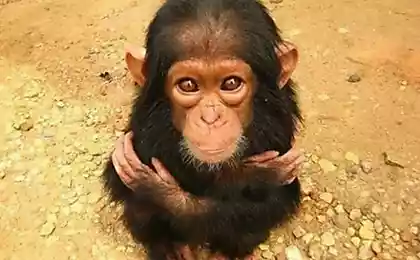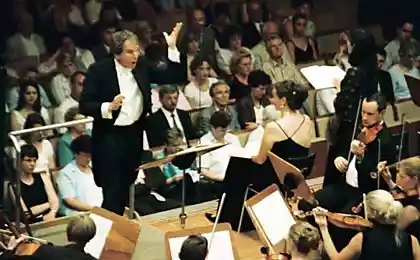595
The status quo: how is the status of the individual
What is the status and how it is formed? "... Maxim and Andrew learn in the same group at the University.
Maxim has authority and his opinion counts more. So, if Maxim will offer to skip a lecture or to raise funds for the orphanage, then with high probability, it will support others.
The opinion of Andriy don't seem interested in anyone at all: if he will Express some idea, it simply can not hear. These two young men live completely different social lives. Even if we see them for the first time, we need only a few moments of observation to accurately understand what Maxim – high social status, while Andrew low"
But what determines the status, and what it does to people? Is it possible to change and how to do it?

People are social creatures and prefer to live in groups. In each group, a hierarchy is a system of distribution of rights and obligations, the status system, the importance of each member of the group. The desire for high status is one of the first and the most important motivations of human behavior.The higher the status the better the chances of survival and the renewal of nature. Power – the ability to realistically and effectively influence others, often goes along with the status. The status and the corresponding power — the ability to give or take away valuable resources and to punish or reward someone.
We better recognize faces of people with high status, compared to people with low status. This is a consequence of the phenomenon of preference of attention towards the faces of the people with high status. Reading emotions on the face of the high status person is highly useful for survival in the conditions of life in small groups. When performing these tasks, our memory works better, because our brain allocates more resources. The knowledge that the brain never waste energy in vain, tells us that status is extremely important.
Confirmation of this can serve the fact that we quickly react to the words that define social status, and in a minute you can see who of the interlocutors is a leader and who – a slave.
How is the status?
Everything, literally everything, and our genes, upbringing, and environment, are involved in the formation of status – and that does not depend on us, and what we can change.
Physique: strength, height, attractiveness higher, stronger and more beautiful the person, the potentially higher the position in society. The ratio of width of face to length: the higher the number, the wider the face, and men with such data have a high level of testosterone, more aggressive, stronger and more successful financial dlinnousyh. Women are more likely to agree on a second date with a man, but for short-term relationships, however.
Some social theories say that people achieve status in the group by producing important benefits for all, rather than through aggression. However, people attach high status to people with a threatening appearance, despite the fact that it has no connection with the public good.
Extroverts have a better chance to have high status in comparison with introverts. Neuroticism is negatively associated with the status of men: they "should not" to feel fear, doubt and sadness.
Even beautiful-sounding name plays a role in raising the status: the chances of getting a job a person with a good sounding name and surname — many times more than the person with the bad.
Education of parents and their attitude towards their children's education and their future impact: for example, the presence of books in the home of a teenager 14 years old can predict his status in life, studies and the number of years of education.
Luck: we all know some really influential people who can, if they wish, with a wave of the little finger, to turn us into dust, and we see that they would be small, frail, and not very smart. They just got lucky, because nothing in their lives could not have predicted such a meteoric rise in status.
Status exists in the eyes of other group members, and it is worth something, while the power coming from status, real. In other words, how real and easily the status holders of power you can physically destroy or rot in an isolated location. Will we fear and respect the status of Kim Jong UN, if he is in the supermarket near our home, and will be cutting and rude? However, if this was North Korea, we have to reckon with his status or his life.
Status changes
Here are some of the facts obtained in experimental studies:

Throughout the history of mankind, with the exception of the last decades, and then only in developed countries,the portion size of the food indicated the status. Evolutionary "habits" have not gone away, and we still try unconsciously to signal to others that we're okay. In experiments psychologists have artificially lowered the status of man, and he began to choose larger portions of food than people with satisfying their status. People with high status, however, preferred smaller size portions. This is particularly manifested in the public space.
If you think this is reflected in the appearance, you're right – a well-known British study of thousands of civil servants have shown that even obese people with a different status is different, and people with low status obesity — the most dangerous type. This is a manifestation of stress, is also very different in character, depending on status.
Huge house, big TV, big car, even the fridge is able to accommodate intact Hippo is all of the endless struggle for status.
The study of power and aggression showed that chronically nizkochastotnykh people, random acquisition of the status leads to ugly behavior – they are more vindictive, and treacherous. After the second world war in Europe came the term "little Hitler". They call people with low social status, but relatively large power. This can be the official teacher in the University or patrol officer. Experiments in which people were asked to give another very humiliating test, showed that of all the possible combinations of status and power, this is the most disgusting. The role of the individual still plays a role, but many people are good and nice, they find themselves in such a situation, quickly turn into little Fuhrers, and each of us knows at least one.
In almost all conversations, it sets the tone for the person with higher status – it is his prerogative whether the conversation trusting and positive, suspicious or negative.
"We" is the power word, and "I" — subordination. If you listen to the talking head with subordinates, Postnikova you will not hear "I" from a person with high status, but in almost every proposal – from the man with the low. This occurs from the fact that the "I" — appeal to yourself, to your inner world, the constant validation of its place in hierarchy, manifestation, if you will, of uncertainty. This uncertainty can be quite reasonable, but it is not compatible with high status. At high position of the people should not and probably can not even doubt himself: he forgets himself and speaks only of "us", "you" and "you."
High status not only transforms the world around into a bowl of abundance, but also changes the perception of the world. For example, a person can perceive yourself physically taller than in reality. So people of small stature, clothed in power, think themselves higher, bigger and stronger than the really are, and, most likely, however, overstates its power. When people in the experiments were attributed to a high status, they began to perceive the applause in their honor as louder than it actually is. The people around started to become benevolence, and watched with approval. So when the roads are blocked for the passage of some dignitary and people in traffic honking in indignation, he can really think that they are signs of welcome and admiration! Such a person expects support and agreement with the decisions and actions he performs. The higher the status, the less doubt. Not coincidentally, some dictators start to believe in his infinite wisdom, universal adoration, and sometimes even immortality.Maybe that inadequacy of perception is a necessary condition to stay in power?
Can I change the status?
First of all, each of us has different status in different groups – one at work, another – in the family, the friends, the fourth in the company of strangers. However, we tend to adhere to the highest status that possess, in all situations, with a particular success.
So what do we know:
Power charms: we, the people, think about power and status, perhaps more than about anything else. So, if you include a huge amount of time we spend tracking the political life of the society or the personal life of the powerful – whether pop stars or politicians. Possible decisions that these people publicly every day, serve as examples to us and the revelations about the nature of human nature. We do this only because it is really important to our well-being.
Theory tells us that the hierarchy should encourage its members to give the group something of value by rewarding them for it improvement status. But automatically and of course is not happening, or not happening at all.
Success and happiness depend on our abilities to quickly and correctly understand social hierarchies and to be able to find them in their place. We can do it in seconds, measuring a person by his appearance, posture, clothing, voice, accent, growth, and speech. Studies have shown that our status can change instantly, depending on the situation. This is an important finding of psychology that tells us that we all have the ability and potential to be leaders, and those who we see sometimes in the place of leaders are often no better and no more capable than us, and sometimes just a spoiled child. Therefore, search for its rightful place, never give up, and don't let anyone determine for you to your destiny! published
P. S. And remember, just changing your mind - together we change the world! ©
Source: mindware.ru/blog/?p=6810
Maxim has authority and his opinion counts more. So, if Maxim will offer to skip a lecture or to raise funds for the orphanage, then with high probability, it will support others.
The opinion of Andriy don't seem interested in anyone at all: if he will Express some idea, it simply can not hear. These two young men live completely different social lives. Even if we see them for the first time, we need only a few moments of observation to accurately understand what Maxim – high social status, while Andrew low"
But what determines the status, and what it does to people? Is it possible to change and how to do it?

People are social creatures and prefer to live in groups. In each group, a hierarchy is a system of distribution of rights and obligations, the status system, the importance of each member of the group. The desire for high status is one of the first and the most important motivations of human behavior.The higher the status the better the chances of survival and the renewal of nature. Power – the ability to realistically and effectively influence others, often goes along with the status. The status and the corresponding power — the ability to give or take away valuable resources and to punish or reward someone.
We better recognize faces of people with high status, compared to people with low status. This is a consequence of the phenomenon of preference of attention towards the faces of the people with high status. Reading emotions on the face of the high status person is highly useful for survival in the conditions of life in small groups. When performing these tasks, our memory works better, because our brain allocates more resources. The knowledge that the brain never waste energy in vain, tells us that status is extremely important.
Confirmation of this can serve the fact that we quickly react to the words that define social status, and in a minute you can see who of the interlocutors is a leader and who – a slave.
How is the status?
Everything, literally everything, and our genes, upbringing, and environment, are involved in the formation of status – and that does not depend on us, and what we can change.
Physique: strength, height, attractiveness higher, stronger and more beautiful the person, the potentially higher the position in society. The ratio of width of face to length: the higher the number, the wider the face, and men with such data have a high level of testosterone, more aggressive, stronger and more successful financial dlinnousyh. Women are more likely to agree on a second date with a man, but for short-term relationships, however.
Some social theories say that people achieve status in the group by producing important benefits for all, rather than through aggression. However, people attach high status to people with a threatening appearance, despite the fact that it has no connection with the public good.
Extroverts have a better chance to have high status in comparison with introverts. Neuroticism is negatively associated with the status of men: they "should not" to feel fear, doubt and sadness.
Even beautiful-sounding name plays a role in raising the status: the chances of getting a job a person with a good sounding name and surname — many times more than the person with the bad.
Education of parents and their attitude towards their children's education and their future impact: for example, the presence of books in the home of a teenager 14 years old can predict his status in life, studies and the number of years of education.
Luck: we all know some really influential people who can, if they wish, with a wave of the little finger, to turn us into dust, and we see that they would be small, frail, and not very smart. They just got lucky, because nothing in their lives could not have predicted such a meteoric rise in status.
Status exists in the eyes of other group members, and it is worth something, while the power coming from status, real. In other words, how real and easily the status holders of power you can physically destroy or rot in an isolated location. Will we fear and respect the status of Kim Jong UN, if he is in the supermarket near our home, and will be cutting and rude? However, if this was North Korea, we have to reckon with his status or his life.
Status changes
Here are some of the facts obtained in experimental studies:
- People with high status less reflect the facial expressions and gestures of other people.
- Staff better identify other people's emotions than subordinates.
- Those who have control over resources, often Express their true feelings, more positive emotions and less negative, the better to see and accept the reward, and do not distinguish between threats.
- High social status eliminates the need of proving his manhood. In experiments scientists have shown that people with low status are more concerned about threats to their masculinity, and even tried going to the gym.
- Dominance in the group gives others the impression about the competence of the possessor of high status, but no relationship between these two parameters there. No inverse effect: competence did not necessarily bring status (ask any "nerd").
- The lower a man's status, the more he likes large Breasts in women. Interestingly, if the status changes upward, and the preference shifted to the average breast size.
- The sense of power increases optimism in perceiving risks and leads to more risky behavior, e.g. unprotected sex with strangers or war with a neighbor.
- When the researchers imputed a high or low status, people began to relate to different others. For example, when asked to write the letter "E" on your forehead, people with high status wrote so that it is easy to read for themselves, and people with low – to make it clear to others.

Throughout the history of mankind, with the exception of the last decades, and then only in developed countries,the portion size of the food indicated the status. Evolutionary "habits" have not gone away, and we still try unconsciously to signal to others that we're okay. In experiments psychologists have artificially lowered the status of man, and he began to choose larger portions of food than people with satisfying their status. People with high status, however, preferred smaller size portions. This is particularly manifested in the public space.
If you think this is reflected in the appearance, you're right – a well-known British study of thousands of civil servants have shown that even obese people with a different status is different, and people with low status obesity — the most dangerous type. This is a manifestation of stress, is also very different in character, depending on status.
Huge house, big TV, big car, even the fridge is able to accommodate intact Hippo is all of the endless struggle for status.
The study of power and aggression showed that chronically nizkochastotnykh people, random acquisition of the status leads to ugly behavior – they are more vindictive, and treacherous. After the second world war in Europe came the term "little Hitler". They call people with low social status, but relatively large power. This can be the official teacher in the University or patrol officer. Experiments in which people were asked to give another very humiliating test, showed that of all the possible combinations of status and power, this is the most disgusting. The role of the individual still plays a role, but many people are good and nice, they find themselves in such a situation, quickly turn into little Fuhrers, and each of us knows at least one.
In almost all conversations, it sets the tone for the person with higher status – it is his prerogative whether the conversation trusting and positive, suspicious or negative.
"We" is the power word, and "I" — subordination. If you listen to the talking head with subordinates, Postnikova you will not hear "I" from a person with high status, but in almost every proposal – from the man with the low. This occurs from the fact that the "I" — appeal to yourself, to your inner world, the constant validation of its place in hierarchy, manifestation, if you will, of uncertainty. This uncertainty can be quite reasonable, but it is not compatible with high status. At high position of the people should not and probably can not even doubt himself: he forgets himself and speaks only of "us", "you" and "you."
High status not only transforms the world around into a bowl of abundance, but also changes the perception of the world. For example, a person can perceive yourself physically taller than in reality. So people of small stature, clothed in power, think themselves higher, bigger and stronger than the really are, and, most likely, however, overstates its power. When people in the experiments were attributed to a high status, they began to perceive the applause in their honor as louder than it actually is. The people around started to become benevolence, and watched with approval. So when the roads are blocked for the passage of some dignitary and people in traffic honking in indignation, he can really think that they are signs of welcome and admiration! Such a person expects support and agreement with the decisions and actions he performs. The higher the status, the less doubt. Not coincidentally, some dictators start to believe in his infinite wisdom, universal adoration, and sometimes even immortality.Maybe that inadequacy of perception is a necessary condition to stay in power?
Can I change the status?
First of all, each of us has different status in different groups – one at work, another – in the family, the friends, the fourth in the company of strangers. However, we tend to adhere to the highest status that possess, in all situations, with a particular success.
So what do we know:
- To be nice, sincere and kind person gives nothing in terms of status. Alas, it is, despite the attempts of social Sciences to go on the concept that explained and trying to build peace from the perspective of a reasonable public good when the kindness and help others would be appreciated higher than physical attractiveness or aggressiveness.
- Respect, influence, and fame is the greater, the higher a person's status and Vice versa. You can try to gain respect and become known.
- People are very careful and accurate in the assessment of status and power. This skill probably evolved thousands of years – underestimating the power of some of the dangerous individual could have and still could cost lives. Revaluation is also bad, because it leads to unfair belittling of their status and reduction of benefits. We are always aware of their status in the group, and it usually coincides with the opinion of others. The exaggeration of their status – a dangerous occupation, leading potentially to serious problems. At least, you can earn a stigmatized group. People prefer not to risk and rather downplay status than dare to exaggerate it. Small children sometimes make such errors, but the social life quickly teaches them.
- Education gives hope for a better status, like the man himself, and for his children. To make it clear how deep this connection is, for example: parents whose social status is low, children have the length of telomeres shorter than their peers from wealthier families. Scientists are comparing the normal rate of shortening of telomeres, calculated that children whose parents have low education, the biologically "older" than their peers at 6 years old (judging by the length of telomeres)!
- People with high status speaks and writes in communicating with other less pronouns of the first person singular. But if you become straightforward to force this behavior, you will seem arrogant. If you want to experiment, try quietly to force his interlocutor to say "I", themselves, at the same time, avoid the pronoun and its derivatives, but actively use the words "we" and "you".
Power charms: we, the people, think about power and status, perhaps more than about anything else. So, if you include a huge amount of time we spend tracking the political life of the society or the personal life of the powerful – whether pop stars or politicians. Possible decisions that these people publicly every day, serve as examples to us and the revelations about the nature of human nature. We do this only because it is really important to our well-being.
Theory tells us that the hierarchy should encourage its members to give the group something of value by rewarding them for it improvement status. But automatically and of course is not happening, or not happening at all.
Success and happiness depend on our abilities to quickly and correctly understand social hierarchies and to be able to find them in their place. We can do it in seconds, measuring a person by his appearance, posture, clothing, voice, accent, growth, and speech. Studies have shown that our status can change instantly, depending on the situation. This is an important finding of psychology that tells us that we all have the ability and potential to be leaders, and those who we see sometimes in the place of leaders are often no better and no more capable than us, and sometimes just a spoiled child. Therefore, search for its rightful place, never give up, and don't let anyone determine for you to your destiny! published
P. S. And remember, just changing your mind - together we change the world! ©
Source: mindware.ru/blog/?p=6810


